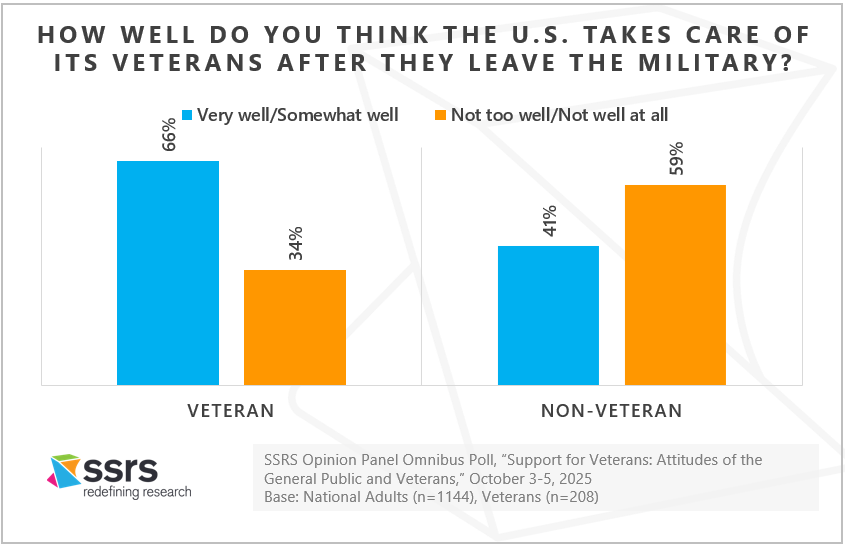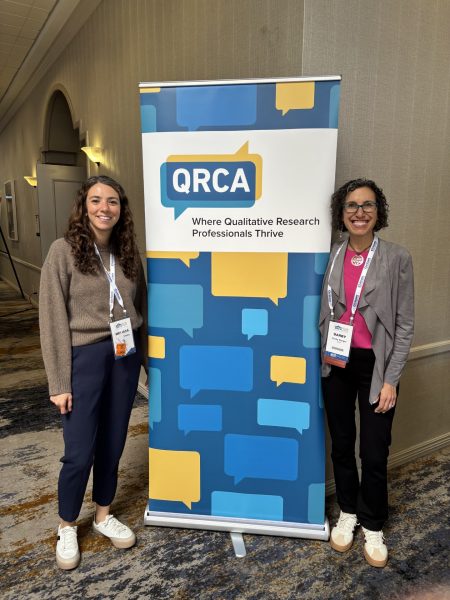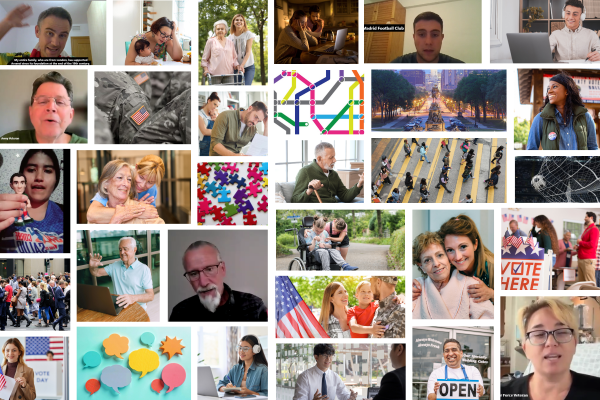“Being a veteran means I accomplished something big. And now there’s nothing I can’t accomplish in my life.”
Recently, researchers at SSRS have been focusing on understanding the needs and experiences of Americans who have served in the military:
- We’ve reported on survey findings about how veterans are supported after leaving the military.
- We’ve shared powerful video testimonials from in-depth qualitative interviews with veterans in our panel, sharing their passion for serving their country.
- And we’ve been spotlighting all of the ways researchers can leverage the thousands of veterans and military-connected households in our panel for future research endeavors.
At the same time, we have been having conversations with colleagues across many organizations who support veterans – through research, advocacy efforts and program evaluation. We’ve sought a wide range of perspectives on veteran experiences, particularly in the current context of the extended government shutdown. A powerful takeaway from these conversations is the worrisome toll the shutdown is having on veterans and their families, particularly those who are often food insecure.
Using Qualitative Interviews to Enhance Survey Data on Veterans
At SSRS, we are motivated to ‘connect the dots’ by bringing together the “how many” from survey data with the “how and why” from qualitative interviews. Very often, we find that survey data only tell us part of the story, while qualitative explorations and an enhanced understanding of the context give us insight into the meaning behind the numbers.
For example, in our recent survey, we found that non-veterans were significantly more likely to be critical of how the US is taking care of veterans (59% said not too well or not well at all) than veterans themselves (34% said not too well or not well at all). So as part of our qualitative interviews with veterans, we asked them to reflect on this finding. Here are some themes of what we heard from the veterans.

Veterans Believe Non-veterans have Limited Real Knowledge of Veterans’ Experiences
Veterans observed that non-veterans have a lot of misconceptions about veterans and might express more negativity about how the US is caring for veterans because they have access to limited information.
“For a non-veteran to think that everybody in the military must have PTSD, they just go by what they see in movies and what they hear about on the news.”
Of note, one veteran emphasized that even though fewer veterans are critical of the care veterans are getting, the survey findings suggest that a meaningfully large portion of veterans in the US have unmet needs.
“If you still have…a third of veterans thinking, we’re not getting the support we need, that’s a pretty high number.”
They also noted that perspectives among veterans themselves may differ based on where they live: “I think it’s almost like I could say 50/50 … it seems like 50% of us feel like we’re okay. And then the other 50%, it depends on where they live and the VA that they go to.”
America Could be Doing More to Help Veterans
The veterans we spoke with generally observed that while Americans thank them for their service, they don’t seem to understand what it means to serve in the military and put their country ahead of their personal needs.
“I don’t think America realizes the sacrifices…If you’re a veteran you should get a break on taxes because we gave our lives for so many years.”
These quotes are just a small portion of the rich findings we gleaned from the in-depth interviews we conducted with veterans. Stay tuned for more highlights from these conversations.
Methodology
The survey data was gathered by SSRS on its Opinion Panel Omnibus platform. The SSRS Opinion Panel Omnibus is a national, twice-per-month, probability-based survey. Data collection was conducted from October 3 – October 5, 2025 among a sample of 1,144 respondents, including 208 veterans. The margin of error for total respondents is +/-3.4 percentage points at the 95% confidence level. The design effect is 1.39. All SSRS Opinion Panel Omnibus data are weighted to represent the target population of U.S. adults ages 18 or older.
Qualitative in-depth interviews were conducted in October, 2025 with four panelists who had served in the U.S. military and who agreed to take part in a 30-minute interview over Zoom with a SSRS researcher.









